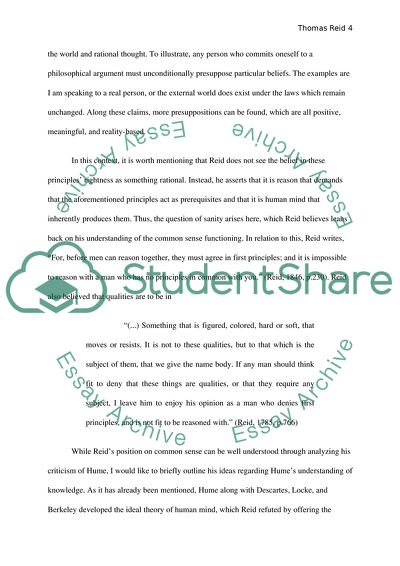Cite this document
(Thomas Reids position on common sense realism and critically evaluate Essay, n.d.)
Thomas Reids position on common sense realism and critically evaluate Essay. https://studentshare.org/philosophy/1765748-thomas-reids-position-on-common-sense-realism-and-critically-evaluate-his-argument
Thomas Reids position on common sense realism and critically evaluate Essay. https://studentshare.org/philosophy/1765748-thomas-reids-position-on-common-sense-realism-and-critically-evaluate-his-argument
(Thomas Reids Position on Common Sense Realism and Critically Evaluate Essay)
Thomas Reids Position on Common Sense Realism and Critically Evaluate Essay. https://studentshare.org/philosophy/1765748-thomas-reids-position-on-common-sense-realism-and-critically-evaluate-his-argument.
Thomas Reids Position on Common Sense Realism and Critically Evaluate Essay. https://studentshare.org/philosophy/1765748-thomas-reids-position-on-common-sense-realism-and-critically-evaluate-his-argument.
“Thomas Reids Position on Common Sense Realism and Critically Evaluate Essay”. https://studentshare.org/philosophy/1765748-thomas-reids-position-on-common-sense-realism-and-critically-evaluate-his-argument.


